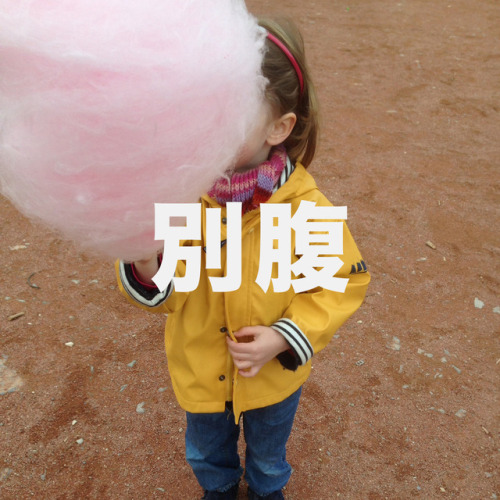Kanji Version Of Words Usually Written In Hiragana
Kanji version of words usually written in hiragana
While these words are usually written in hiragana, sometimes you’ll see them written in kanji instead, so learning to at least recognize them is pretty helpful. Trust me on this, I got confused by 沢山 way too many times already haha
有難う(ありがとう)ー thank you 幾つ(いくつ)ー how many 流石(さすが)ー as one would expect 更に(さらに)ー furthermore, again, after all 既に(すでに)ー already 沢山(たくさん)ー a lot 丁度(ちょうど)ー just, exactly, precisely 出来る(できる)ー to be able 尚(なお)ー furthermore, still, yet 何故(なぜ)ー why 等(など)ー et cetera 程(ほど)ー degree, extent, approximately 然し(しかし)ー however 居る(いる)ー to be (people, animals) 有る(ある)ー to be (things) 恐らく(おそらく)ー probably, likely 下さい(ください)ー please (give me, do for me) 只(ただ)ー only, just; free of charge 及び(および)ー and, as well as
More Posts from Earthquakedeer and Others

かっこいい/かわいい熟語のリスト A list of cool/cute Japanese compound words
別腹(べつばら)→ (n.) having room for dessert even if one is full (lit. extra stomach)
口寂しい(くちさびしい)→ (n.) the feeling of wanting to put something in one’s mouth (lit. mouth + lonely)
食い違い(くいちがい)→ (n.) diverging or conflicting opinions (lit. eating + different)
食い倒れ(くいだおれ)→ (n.) getting into debt by extravagance in food (lit. eating + bad debt/collapse)
寝酒(ねさけ)→ (n.) night cap ⭐︎☽ (lit. sleep + alcohol)
昼寝(ひるね)→ (n.) siesta, nap (lit. daytime + sleep)
寝坊(ねぼう)→ (n.) late riser, sleepyhead (lit. sleep + someone who~)
朝寝(あさね)→ (n./–suru v.) sleeping late in the morning (lit. morning + sleep)
早起き(はやおき)→ (n.) early riser (lit. early + wake up)
歩き回る(あるきまわる)→ (v.) walking about (lit. walk + turn)
水遊び(みずあそび)→ (n.) splashing about (lit. water + play)
長話(ながはなし)→ (n.) a long talk (lit. talk + long)
話々(はなしばなし)→ (n.) small talk (lit. talk + talk)
昔話(むかしばなし)→ (n.) legends, old tales, reminiscence (lit. olden days + talk)
心強い(こころずよい)→ (–i adj.) reassuring, heartening (lit. heart + strong)
猫好き(ねこずき)→ (n.) cat lover (lit. cat + like)
猫舌(ねこじた)→ (n.) dislike of hot drinks or food (lit. cat + tongue)
積ん読(つんどく)→ (n./–suru v.) buying books and not reading them (lit. pile up/stack + read)
忘れ物(わすれもの)→ (n.) something you left behind, forgot (lit. forgot + thing)
蛇足(だそく)→ (n.) useless addition, redundancy (lit. snake + legs) ˉ̶̡̭̭ ( ´͈ ᗨ `͈ ) ˉ̶̡̭̭
German Vocabulary: Literature

Die Literatur - literature
Das Buch - book Das Taschenbuch - paperback Der Buchladen - bookshop Die Bücherei - library
Der Leser (m) - reader Die Leserin (f) - reader
Der Autor (m) - author Die Autorin (f) - author Der Schriftsteller (m) - writer Die Schriftstellerin (f) - writer Der Text - text Die Geschichte - story
Die Epik - epic
Die Erzählung - narrative Die Kurzgeschichte - short story Der Roman - novel Die Novelle - novella Das Märchen - fairy tale Die Fabel - fable Die Parabel - parable Das Epos - epic poem Der Kriminalroman - crime novel Die Kinderliteratur - children’s literature Die Autobiographie - (auto)biography Die Memoiren - memoirs Das Tagebuch - diary Die Frauenliteratur - feminist literature Die Belletristik - fiction Das Sachbuch - non fiction Der Kriegsroman - war novel
Der Titel - title Der Untertitel - subtitle Das Kapitel - chapter Die Einleitung - introduction Das Vorwort - preface Die Anmerkung - note Das Zitat - quote Der Prolog - prologue Der Epilog - epilogue Der Absatz - paragraph Die Zeile - line Die Seite - page
Die Handlung - plot Die Rahmenhandlung - frame story Die Nebenhandlung - subplot/secondary plot Der Inhalt - content Die Rückblende - flashback Die Vorausdeutung - foreshadowing Der rote Faden - the central theme Die Figur - character Die Hauptfigur - main character Die Nebenfigur - secondary/minor character Der Held (m) - hero Die Heldin (f) - hero Die direkte Rede - direct speech Die indirekte Rede - indirect speech Der Bewusstseinsstrom - stream of consciousness Der Höhepunkt - climax
Die Lyrik - poetry
Das Gedicht - poem Der Dichter (m) - poet Die Dichterin (f) - poet Der Vers - verse Der Reim - rhyme Die Strophe - strophe Die Gedichtform - type of poem Die Ballade - ballad Das Sonett - sonnet Das Lied - song Die Ode - ode Die Hymne - hymn
Das Drama - drama (play)
Die Dramatik - drama Die Tragödie - tragedy Die Komödie - comedy Die Tragikkomödie - tragicomedy Der Akt - act Die Aufführung - performance Die Darstellung - acting Der Schauspieler (m) - actor Die Schauspielerin (f) - actress Die Szene - scene Die Bühne - stage Das Bühnenbild - stage set Die Rede - speech Der Monolog - monologue Der Dialog - dialogue Der Konflikt - conflict Die Katastrophe - catastrophe
Die Literaturepochen - Literary Periods
Die Mittelalterliteratur - Medieval Literature (750-1500) Der Humanismus - Humanism (1500–1650) Der Barock - Baroque (1600–1720) Die Aufklärung - The Enlightenment (1680–1789) Der Sturm und Drang - Storm and Stress (1760s-1780s) Die Weimarer Klassik - Weimar Classicism (1788–1832) Die Romantik - Romanticism (1790s-1880s) Der Realismus - Realism (1848–1890) Der Naturalismus - Naturalism (1880–1900) Der Expressionismus - Expressionism (1910–1920) Die Exilliteratur - literature written in exile during Nazi Germany Die Nachkriegsliteratur - Post-war Literature (1945–1967) Die Zeitgenössische Literatur - Contemporary Literature (since 1989)
+ “literature” in some other languages: Albanian: letërsi Danish: litteratur Icelandic: Bókmenntir Italian: letteratura French: Littérature Arabic: الأدب Turkish: Edebiyat Afrikaans: literatuur Swahili: fasihi Zulu: izincwadi Filipino: panitikan Maori: tuhinga Bengali: সাহিত্য Chinese (Traditional): 文學 (wénxué)

Vocabulary Word 15 :
こねこ
子猫
koneko
kitten
Instagram @ happystudyblog
Kommen and Prefixes
to come: kommen
to get away: abkommen
to arrive: ankommen
to make do: auskommen
to receive: bekommen
to come in: einkommen
to escape: entkommen
to come here: herkommen
to come along: mitkommen
to come after: nachkommen
to decay: verkommen
to happen: vorkommen
to approach: zukommen
Tag your OC:
OC 1: wow i'm really thirsty
OC 2: [rummages through bag and takes out full water bottle]
OC 1: hey, thank--
OC 2: [opens bottle and chugs contents while maintaining eye contact]
OC 1:
住む vs.暮らす
Both of these verbs means “to live” but there is a slight nuance in meaning.
住む「すむ」simply means to live somewhere, the act of of you residing in a house, apartment, etc
暮らす「くらす」means to live but focuses on the 生活 (daily life) and interactions with the place you live
例えば:
僕は東京に住んでいる。This sentence simply means that I live in Tokyo, that I existence and take residence in Tokyo.
僕は東京に暮らしている。This sentence means that I not only reside in Tokyo, but my daily life and interactions are in Tokyo. May imply that I also work there, my whole life is in Tokyo, more than just a place of existence.
Both words are interchangeable, so if you use one in place of the other it’s totally fine, they only really matter when you want to imply something more in the meaning. Also, 一人暮らし「ひとりぐらし」 is a noun that means to live alone or have a solitary life. Thought you guys might find that word useful!

»work no. 2325« by martin creed (+)

pronunciation | tsUn-dO-kU (tsoon-doh-koo) submitted by | chrysalismm submit words | here Japanese script | 積ん読 kanji, つんどく hiragana
Sleepy vocab in German

der Schlaf - sleep schlafen - to sleep schläfrig - sleepy
die Müdigkeit - tiredness müde - tired gähnen - to yawn die Erschöpfung - exhaustion erschöpft - exhausted
Gute Nacht! - Good night! Schlaf gut! - Sleep well! Träum schön / süß! - Sweet dreams!
das Nickerchen - nap sich niederlegen - to lie down einschlafen - to fall asleep der Traum - dream träumen - to dream der Albtraum - nightmare sich hin und her wälzen - to toss and turn schnarchen - to snore ausschlafen - to sleep in aufwachen - to wake up aufstehen - to get up schlaftrunken - drowsy, sleepy (lit. “sleep drunk“) ausgeschlafen - well-rested wach - awake
das Schlafzimmer - bedroom das Bett - bed die Couch, das Sofa - couch, sofa die (Bett)decke - blanket das Kissen, der Polster (österr.) - pillow das Nachtkästchen, der Nachttisch - nightstand die Nachttischlampe - bedside lamp der Wecker - alarm clock
der Schlafmangel - sleep deprivation die Schlafstörung - sleep disorder die Schlaflosigkeit - insomnia das Schlafwandeln - sleepwalking


-
 cremebrulee-69 reblogged this · 1 month ago
cremebrulee-69 reblogged this · 1 month ago -
 cremebrulee-69 liked this · 1 month ago
cremebrulee-69 liked this · 1 month ago -
 imperturbavel liked this · 3 months ago
imperturbavel liked this · 3 months ago -
 refs-sideblog reblogged this · 3 months ago
refs-sideblog reblogged this · 3 months ago -
 pyromon liked this · 10 months ago
pyromon liked this · 10 months ago -
 busbyway liked this · 1 year ago
busbyway liked this · 1 year ago -
 friendlyasianneighbour liked this · 2 years ago
friendlyasianneighbour liked this · 2 years ago -
 risoris liked this · 2 years ago
risoris liked this · 2 years ago -
 heavenlydolly liked this · 2 years ago
heavenlydolly liked this · 2 years ago -
 lunestival liked this · 2 years ago
lunestival liked this · 2 years ago -
 softlittleheartsandsparkles reblogged this · 2 years ago
softlittleheartsandsparkles reblogged this · 2 years ago -
 pumpkinsae liked this · 2 years ago
pumpkinsae liked this · 2 years ago -
 thesoulfirerevolution liked this · 3 years ago
thesoulfirerevolution liked this · 3 years ago -
 straya-cat liked this · 3 years ago
straya-cat liked this · 3 years ago -
 sunsharky liked this · 3 years ago
sunsharky liked this · 3 years ago -
 tokyostudying reblogged this · 3 years ago
tokyostudying reblogged this · 3 years ago -
 tokyostudying liked this · 3 years ago
tokyostudying liked this · 3 years ago -
 limekiwi reblogged this · 3 years ago
limekiwi reblogged this · 3 years ago -
 limekiwi liked this · 3 years ago
limekiwi liked this · 3 years ago -
 learningvariousshit reblogged this · 3 years ago
learningvariousshit reblogged this · 3 years ago -
 littlelilyleaf liked this · 3 years ago
littlelilyleaf liked this · 3 years ago -
 sarido275 reblogged this · 4 years ago
sarido275 reblogged this · 4 years ago -
 sarido275 liked this · 4 years ago
sarido275 liked this · 4 years ago -
 luna-tv reblogged this · 4 years ago
luna-tv reblogged this · 4 years ago -
 luna-tv liked this · 4 years ago
luna-tv liked this · 4 years ago -
 notmysthings reblogged this · 4 years ago
notmysthings reblogged this · 4 years ago -
 notmysthings liked this · 4 years ago
notmysthings liked this · 4 years ago -
 sirahere liked this · 4 years ago
sirahere liked this · 4 years ago -
 zefiiri reblogged this · 4 years ago
zefiiri reblogged this · 4 years ago -
 languagereblogvoid reblogged this · 4 years ago
languagereblogvoid reblogged this · 4 years ago -
 scatterbrain-crybaby liked this · 4 years ago
scatterbrain-crybaby liked this · 4 years ago -
 regentbertolottobalzary liked this · 4 years ago
regentbertolottobalzary liked this · 4 years ago -
 jianyiinskirt liked this · 4 years ago
jianyiinskirt liked this · 4 years ago -
 soldierofapathy liked this · 4 years ago
soldierofapathy liked this · 4 years ago -
 melinoeblues liked this · 4 years ago
melinoeblues liked this · 4 years ago -
 kuma-noir liked this · 4 years ago
kuma-noir liked this · 4 years ago -
 wahoo-fish liked this · 4 years ago
wahoo-fish liked this · 4 years ago -
 edenianafro liked this · 4 years ago
edenianafro liked this · 4 years ago -
 ravenite-otaku reblogged this · 4 years ago
ravenite-otaku reblogged this · 4 years ago -
 naanavi liked this · 4 years ago
naanavi liked this · 4 years ago -
 darekaposts liked this · 4 years ago
darekaposts liked this · 4 years ago
Just a person learning Japanese. Self-learner. If you're also studying Japanese and want to practice with someone (and you're also very much a beginner) then message me! はじめまして! さびーなです。よとしく!
196 posts